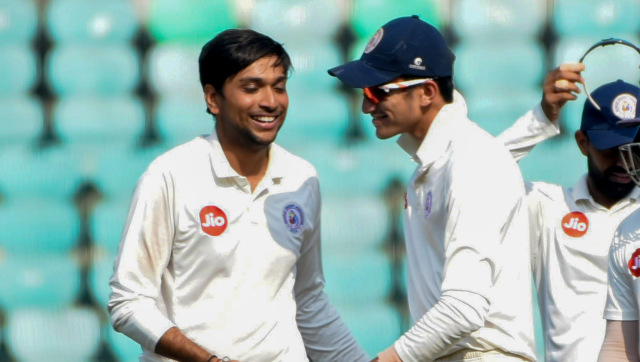There is something sinister afoot in Gujarat.
It is of course more than a strident demand for quotas for the Patels, easily the poster boys for Gujarat’s prosperity. It is hard for non-Gujaratis, or those who lives outside it, to believe that a Patel is disadvantaged or that he requires a prop up like the scheduled castes, tribes, and other backward classes require.
The amazing thing is that the seekers of affirmative support are those who wanted to deny that to others. In 1985, the Patels ironically backed the anti-quota stir. The then Congress government, led by Madhavsinh Solanki, had tried to daub it as ‘communal’ and it went out of control. He paid a price for it as he lost his job. Now, the leader of the stir has warned that the “lotus will not bloom in Gujarat in 2017”.
Being at the helm of affairs when the 2002 Gujarat riots happened, Prime Minister Narendra Modi would be the best placed to sense the crisis that is evolving in his home state and its contours. He cannot let it run out of hand, and on Wednesday he appeared on television appealing for peace and dialogue. He spoke with a picture of Gandhi and Sardar Patel placed on a shelf behind him, a touch indicating his hurry to restore peace.
The Patels had in many ways backed – through participation and with material support – the anti-reservation stir in Gujarat which the then Congress-led government tried to paint it as communal. Now the Patels have turned full circle and following reasons are speculated:
First, the community, despite a 15 percent proportion of the total population, command more resources than any other does. Patels are victims of fragmented land holdings and business opportunities have somewhat reduced.
Second, it is the handiwork of Keshubhai Patel, though he had not been able to show much influence even as Modi’s fortunes rose. It is a bid to unseat another Patel who is BJP’s chief minister. Or at least, cause trouble for Modi’s successor.
Third, anti-Modi forces like Praveen Togadia, once close associates in the Sangh Parivar, have banded together to show prime minister’s writ does not run in his own state. It’s something Modi can ill-afford.
Fourth, the BJP could have instigated it to raise a debate on caste-based reservations so that the Centre could move in with only an economic yardstick for quotas. This however appears too complex. A shrewd politician that he is, Modi cannot afford a Frankenstein’s monster.
Fifth, Patels, who were mocked at in the 1970s and 80s, have run amok. Solanki’s father-in-law, Ishwarbhai Chawda, used to publicly say he wanted Patel families to buy cooking oil on a daily basis, and their women work as domestic help. This, because the Rajputs, known also as Durbars, ruled small fiefdoms mostly in Saurashtra and couldn’t bear to see the upward mobility of Patels after land reforms. Solanki had written to Rajiv Gandhi during the anti-quota stir that the groundnut oil lobby, dominated by Patels, was destabilising his government.
It is hard to pick any one of the above as the cause of the present stir. It may be a combination of one with another. Now that curfew had to be imposed in some places, after even police outposts were allegedly set afire, we haven’t heard the last of this developing story. Yes, of course, Gujarat will now likely go through some convulsions.
The others who are “beneficiaries” of OBC quota in Gujarat but could not move upwards much see the Patel demand, if met, as a possible threat to their own rights. Because of the ceiling on quotas prescribed by the apex court in the past, inclusion of Patels would amount to a smaller proportion for other OBCs.
Note that the current agitation’s leader, Hardik Patel carries arms. And he is seeking national attention by speaking in Hindi at the rally of Patels in Ahmedabad. It may be a sign of his ambitions.
)
)
)
)
)